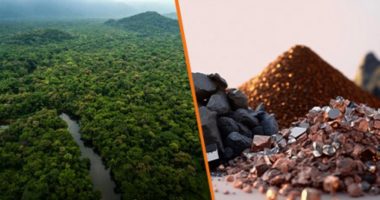The Australian Federal Government and defence force this week announced their plans to invest $6 billion in the single largest nuclear-powered submarine deal in history.
However, it was only in December that the Australian Institute of Physics declared a massive call to action for the nuclear jobs Sector.
In December 2022, the Australian Institute of Physics (AIS) released a press release declaring that thousands needed to be trained in nuclear science for submarines, cancer treatments, the space industry, mining and much more in order to meet future nuclear demand — training that Australia is currently not in a position to provide.
The AIS press release said quantum computing, satellites used in space, and the extraction of critical minerals were top nuclear priorities that all demanded training in nuclear science. And this was all before the $6 billion AUKUS deal.
Senior lecturer in physics at the Australian National University AJ Mitchell said the need for training was “urgent”.
“The captain of our first nuclear submarine is probably already in secondary school today,” Dr Mitchell said.
“As nuclear science takes an increasingly important part of our day-to-day life, we need to make people understand that ‘nuclear’ is not something to be scared of, but rather to cherish and appreciate.
“While some of the initial training for submarine operations can take place in the US and the UK, we must take this role on ourselves: this must be a sovereign capability. And it needs to start yesterday.”
After a successful research study on the underwater capabilities of nuclear submarines, Monash University detailed in a press release on January 19 the pressures that still lingered over the nuclear job industry.
Professor Michael Preuss said the results were a timely reminder that Australia must do everything it can to grow the skills it needs to build and maintain nuclear submarines.
“Australia is facing an unprecedented challenge in developing a skill base in nuclear within 15 years, in which Australian universities will have to play a key role,” Professor Preuss said.
“And it won’t just be in one or two universities, because the challenge is massive.”
Professor Peuss said there was minimal research conducted on Australia-related nuclear engineering and, importantly, nuclear materials, though Monash University planned to lead the way forward in this respect.
What is the nuclear skills plan?
This week’s AUKUS press release outlined the reunited partnership between the United Kingdom, United States and Australia, with $6 billion invested into the SSN submarine deal over the next four years.
The phased AUKUS approach intends to see Australia and the UK ultimately deliver a new type of armed nuclear-powered submarine by 2040 — one based on a UK design but that will incorporate Australian, UK and US technologies.
The deal will increase the defence capabilities of the Australian Defence Force while also creating up to 20,000 direct jobs over the next 30 years in new industries, with new expertise in science, technology and cyber nationwide.
And the investment is not just on a federal scale.
The Australian Government of Defence has identified WA as being at the forefront of the AUKUS pathway.
Over the next decade, WA will invest up to $8 billion to expand HMAS Stirling to create 3000 direct jobs.
In 2027, HMAS Stirling will host the rotational presence of UK and US nuclear-powered submarines by deploying Australian navy personnel onto visiting boats.
It is expected this will improve operational abilities and gain at-sea experience with naval nuclear propulsion.
The Department of Defence stated that frequent visits from UK and US submarines would allow different nuclear industries to gain the experience they need over time.
The department said it recognised the need to attract, develop and retain a highly-skilled workforce in Western Australia to underpin this project.
The Albanese Labor Government plans to work with the Western Australian Government for the development of skills and a training program while also leveraging existing relationships with WA vocational and tertiary institutions.
“This investment to support Australia’s defence capabilities will create thousands of local jobs for Western Australians, and we’ll work with the Federal Government to deliver the training and development to put local workers in the box seat for these jobs,” Premier Mark McGowan said.
Monash University’s latest research has received most of its funding from the UK’s Engineering and Physical Research Council.
Materials experts working for the Department of Defence have also commissioned Monash to develop a report on the knowledge and skill base required for the field of nuclear materials.
The question, then, remains whether this training will be enough to meet Australia’s expensive AUKUS obligations.








